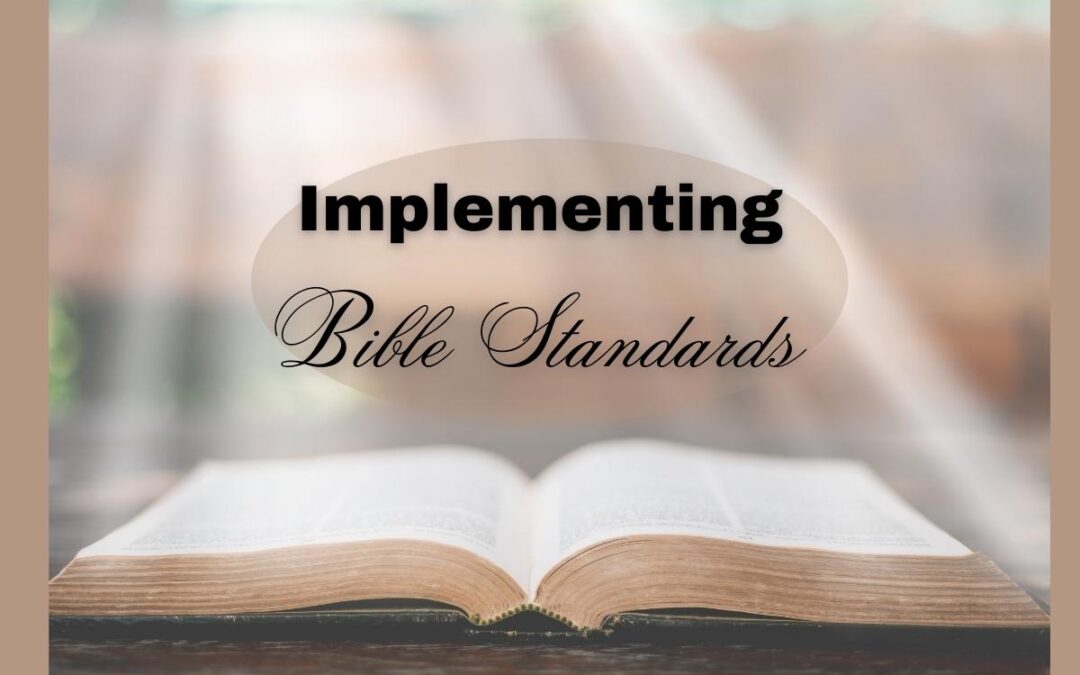One of the most important issues for a young preacher is determining how to implement standards.
It may come as a surprise to him that believers would need guidance as to attire, music, entertainment, and a whole host of other questionable matters. The preacher who ignores the behavior of his members may soon find a serious problem that hinders new prospects from considering becoming a part of his church. A lack of sensitivity can easily offend people and drive them away before God can work in their heart. A harsh and stern approach can develop a judgmental spirit among members of the church.
Finding the right balance of approaching this problem is a key element in the success of a new church.
I recall a new church that met in a Masonic Hall. The meeting place was not the most desirable, but it was adequate for a new church. One problem that soon developed was that a few new believers would stand in the entrance of the building and smoke before entering the hall. Visitors had to walk through a smoke-filled corridor to enter. The pastor, at first, hoped the problem would go away on its own. But eventually the preacher had to make a decision on how he would handle this conflict. The problem was rectified, but not without hurt. Had the preacher dealt with the matter sooner the fallout would have been much less serious.
The preacher must determine the requirements of service for every leader.
Usually, problems such as this are better dealt with soon after they are found out. Most problems only grow rather than disappear. I can recall struggling in the early years of my ministry with how to implement basic standards for those who serve in the church. One of the most helpful decisions I made was to develop a job description and requirements for every place of leadership in the church. This project took about a year of development that was time well spent and solved numerous issues. All of the expectations of every area of service should be clearly communicated.
The preacher must determine the requirements of service for every leader.
The time to determine these expectations is before starting the church. Prevention is more desirable than correction. My philosophy has developed over several years. It is not the place of a novice or a carnal Christian to set the spiritual tone of the church, it is the preacher’s responsibility. In order to serve and represent the church every leader must meet the standards expected by the church.
The requirements for every area of service will not all be the same. As an example, a deacon would be expected to meet a more rigid standard of conduct than an usher. A nursery worker would need to dress in an appropriate manner while working in the nursery, but a Sunday School teacher would have a greater responsibility to meet a higher standard. As a person chooses to serve, he represents the church and must follow the standards of the church.

Anyone can come to church, but in order to serve they are accepting the responsibility of representing the church’s standards. When dealt with properly, most people understand this provided the requirements are reasonable. Would you want a deacon who smokes? Would you want a youth pastor whose wife dressed in a provocative way? Do you want a man in the choir who sported long hair? Would you want a soloist to stand in front of the congregation to sing with a low neck line? These questions should be answered with a resounding NO! If not, then there must be a way to set a standard for people before they agree to accept a responsibility to serve in the church.
The following ideas are some practical suggestions you may find useful:
1. Don’t consider a man to become a deacon or trustee until he has proven his faithfulness for a minimum of three years.
2. Develop a written policy for every position in the church.
Sunday School teachers, bus captains, nursery workers, deacons, special music, staff members, pianists, and altar workers all should know what is expected from them before they agree to serve the Lord in this capacity. (Save New England can provide suggestions and resources.)
3. Be kind, but clear when explaining the church policies.
4. Don’t put people into positions of responsibility prematurely.
5. Don’t expect everyone to have the same convictions as the pastor, but expect them to abide by the guidelines.
6. The pastor and his family must maintain high standards of separation that are above question. A double standard (living one way at church and another way at home) is not only a poor testimony, but leads to an unconcerned attitude among the church members.
7. Allowing people to make their own decisions about matters of dress and deportment is a sure way to weaken the church and lessen its effectiveness.
Christians must learn to maintain an attitude of respect for the things of God. It is the pastor’s responsibility to set high and holy standards for the local church. A godly man will have a deep concern and understanding for matters of appearance, conduct, and attitude.

